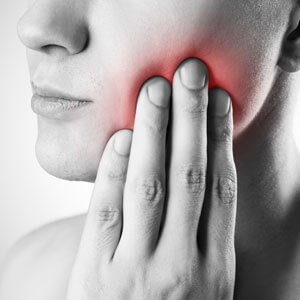 TMJ discomfort isn’t just a jaw issue – it can lead to tension headaches, facial pain, and difficulty chewing. But small changes in your routine can help. If you’re wondering how to avoid this pain or reduce the risk of it developing, it starts with awareness of everyday habits.
TMJ discomfort isn’t just a jaw issue – it can lead to tension headaches, facial pain, and difficulty chewing. But small changes in your routine can help. If you’re wondering how to avoid this pain or reduce the risk of it developing, it starts with awareness of everyday habits.
Watch Your Mouth: What to Avoid
The most common contributors to TMJ discomfort are often things we do without thinking. Clenching your jaw when stressed? Grinding your teeth at night? Chewing gum too often? These repetitive movements may strain the joint and lead to tightness or clicking.
One of the best ways to avoid TMJ pain is to limit strain. That means steering clear of hard, crunchy, or chewy foods – things like crusty bread, raw carrots, or tough meats. When your jaw feels irritated, opt for softer meals.
Posture Plays a Bigger Role Than You Think
It might sound unrelated, but poor posture can affect joint alignment, especially while working at a desk. Slouching pulls your head forward and puts pressure on your neck and face. Sitting tall with your screen at eye level can reduce that tension.
Protect Your Jaw While You Sleep
Bruxism, or teeth grinding during sleep, is a common cause of TMJ issues. A night guard may help keep the area relaxed and protect your teeth. If you often wake up with headaches or jaw tightness, it’s worth asking your dentist about a custom-fit mouthpiece.
Five Easy Lifestyle Adjustments That May Help Prevent TMJ
- Use a heat pack on your jaw when you’re tense
- Try gentle jaw and neck stretches
- Avoid holding tension in your face
- Take regular posture breaks from screens
- Chew mindfully; avoid overworking your jaw
“Most patients don’t realise how much daily habits can impact the jaw,” says the team at TMJ Therapy Centre. “Often, small changes bring real relief.”
Get Needed Relief Today
Want personalised support for TMJ concerns? We’re here to help. Schedule a visit today.
